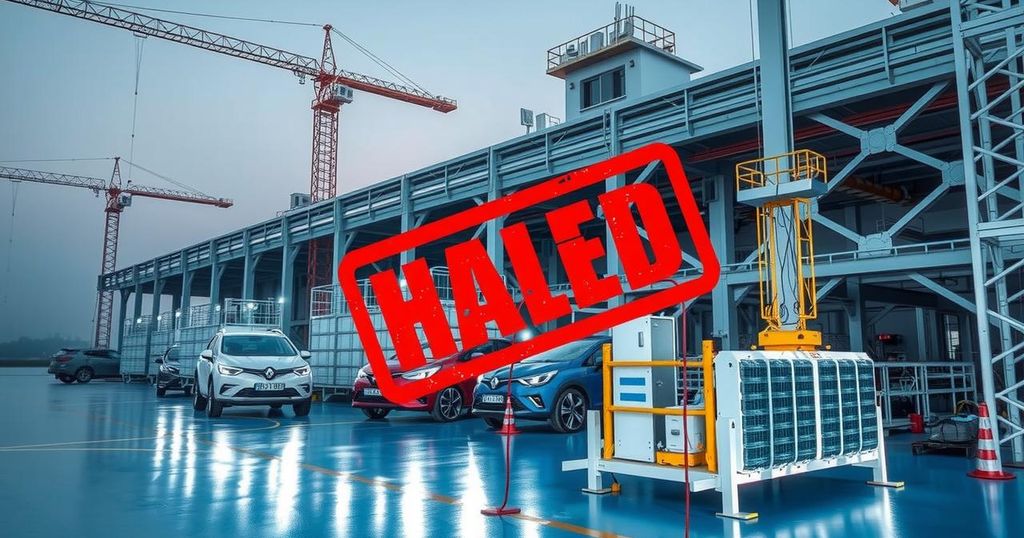BYD Factory Construction Halted in Brazil Over Allegations of Forced Labor
Construction for the BYD electric vehicle factory in Brazil has been halted as over 160 Chinese nationals were found to be working in ‘slave-like conditions.’ Authorities are investigating allegations of forced labor and inadequate living conditions. BYD’s local subsidiary has terminated its contract with the contractor responsible for these workers, who are now accommodated in hotels as investigations proceed.
The construction of a factory intended for the Chinese electric vehicle manufacturer, BYD, has been halted due to allegations of labor violations. Reports from Brazilian officials indicate that over 160 Chinese workers were discovered laboring under conditions described as akin to slavery at the site in Camacari, Bahia. The Brazilian subsidiary of BYD has subsequently terminated its contract with Jinjiang Construction Brazil Ltd., the company responsible for the labor at the factory, which was anticipated to be the largest facility outside Asia with a production capacity of 150,000 vehicles annually.
Brazil’s Public Ministry for Works (MPT) has expressed grave concerns, having identified alarming conditions including inadequate housing and severe limitations on personal hygiene resources for the employees. These workers reportedly suffered from a lack of basic amenities; many were housed without mattresses and shared minimal sanitation facilities. Initial investigations revealed that employees were also subjected to harsh working environments, where they had to line up early in the morning for limited bathroom access, exposing them to intense sun.
The allegations of forced labor at the BYD construction site raise significant issues surrounding labor rights and human dignity in the context of global manufacturing practices. BYD, a prominent player in the electric vehicle market, had aimed to expand its global footprint with a major facility in Brazil, reflecting the growing demand for electric vehicles. However, this situation exposes vulnerabilities in labor oversight, particularly when foreign companies operate in different regulatory environments. The MPT’s findings highlight the necessity for stringent adherence to labor laws to protect workers from exploitative practices, ensuring that companies operate ethically and responsibly.
The situation surrounding BYD’s construction site in Brazil serves as a stark reminder of the potential for labor violations in the global supply chain. The allegations of forced labor and poor working conditions not only threaten the company’s reputation but also emphasize the urgent need for regulatory compliance in labor standards. Brazilian authorities are now taking steps to rectify these violations, and BYD has indicated its commitment to uphold human rights and labor laws.
Original Source: www.abc.net.au




Post Comment